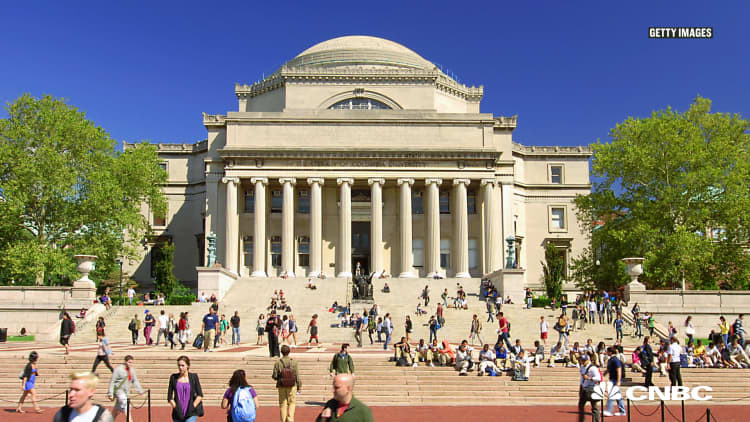If you've ever considered applying to law school but couldn't imagine taking the LSAT, Harvard University has some good news.
On Wednesday, Harvard Law School announced a pilot program that waives the notoriously difficult and pricey LSAT exam. In its place, applicants can submit results from the GRE, the general test used for many master's programs.
The move is designed to broaden the pool of applicants from different economic and educational backgrounds, according to the school.
"The Law School's decision to accept the GRE will alleviate the financial burden on applicants who would otherwise be required to prepare and pay for an additional test," according to the school's website.
Registering for the LSAT in the U.S. costs $180. In addition to the exam, most schools require students to use a standardized service for submitting admissions information and LSAT test scores, which costs $175. That's a total of $355 for one exam, and many students take the LSAT more than once.
Beyond the cost of taking the test and submitting results, there is a $90 fee for late registration, an exam date change or a location change.
GRE registration costs $205, plus $27 per school to submit one's scores. There are extra fees, but they are less expensive than the LSAT's — $25 for late registration and $50 for an exam date change or a location change.
In addition, LSAT preparation courses are often more expensive. For example, Kaplan Test Prep charges $1199 for an online LSAT course led by a teacher, compared to $999 for a GRE course.
But while taking the GRE instead of the LSAT could potentially save applicants money, the change is not just motivated by costs. The GRE is a much more popular test than the LSAT. For the 2015 - 2016 test period, upwards of five times the number of people registered for the GRE as did the LSAT — 584,677 to 105,883, respectively.
Further, the GRE counts only those who complete the test, whereas the LSAT figure includes anyone who begins the exam, regardless of whether they finish.
The move is also meant to encourage applications from students who have not pursued traditional pre-law courses of study, such as history or political science, as undergrads.
Law needs students with science, technology, engineering and math backgrounds.Martha Minowdean of Harvard Law School
"Given the promise of the revolutions in biology, computer science, and engineering, law needs students with science, technology, engineering and math backgrounds," says Harvard Law School dean Martha Minow.
"For these students, international students, multidisciplinary scholars, and joint-degree students, the GRE is a familiar and accessible test," she says.
Despite the change, gaining admission to the school is still incredibly difficult. Ranked No. 2 out of all law schools in the U.S., Harvard Law only accepts a small fraction of those who apply. For the class of 2019, just 16.5 percent of the 5,485 applicants were admitted.
Not everyone agrees that law school is worth the expense. Harvard Law School graduates leave with an average of about $134,374 in debt. Goldman Sachs CEO Lloyd Blankfein, for one, says the debt is not worth it.
But that's a decision applicants will have to make — if they are accepted.



